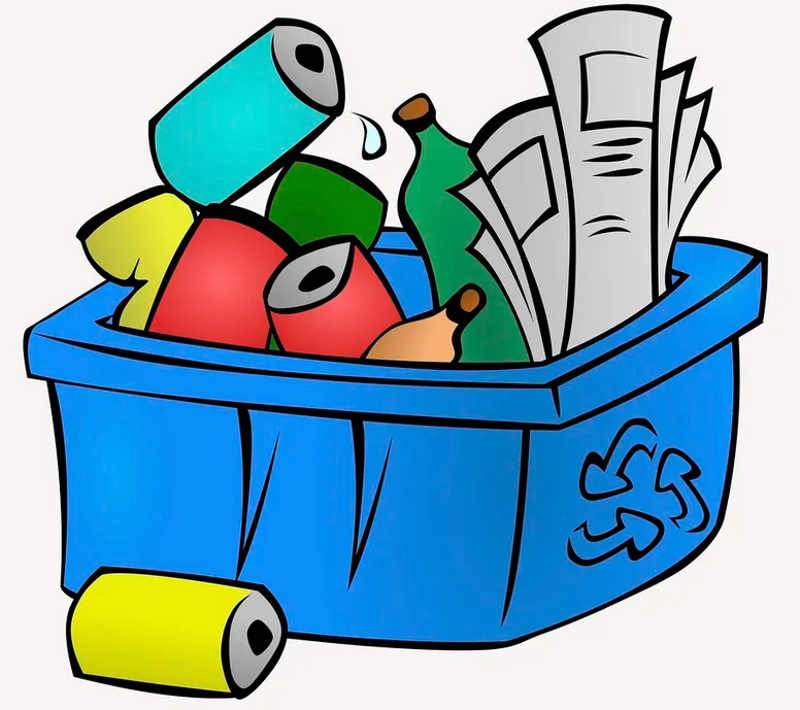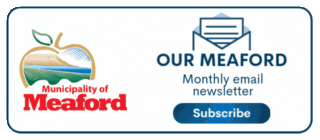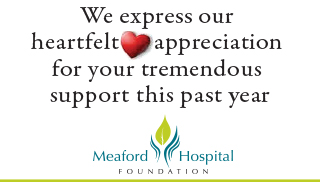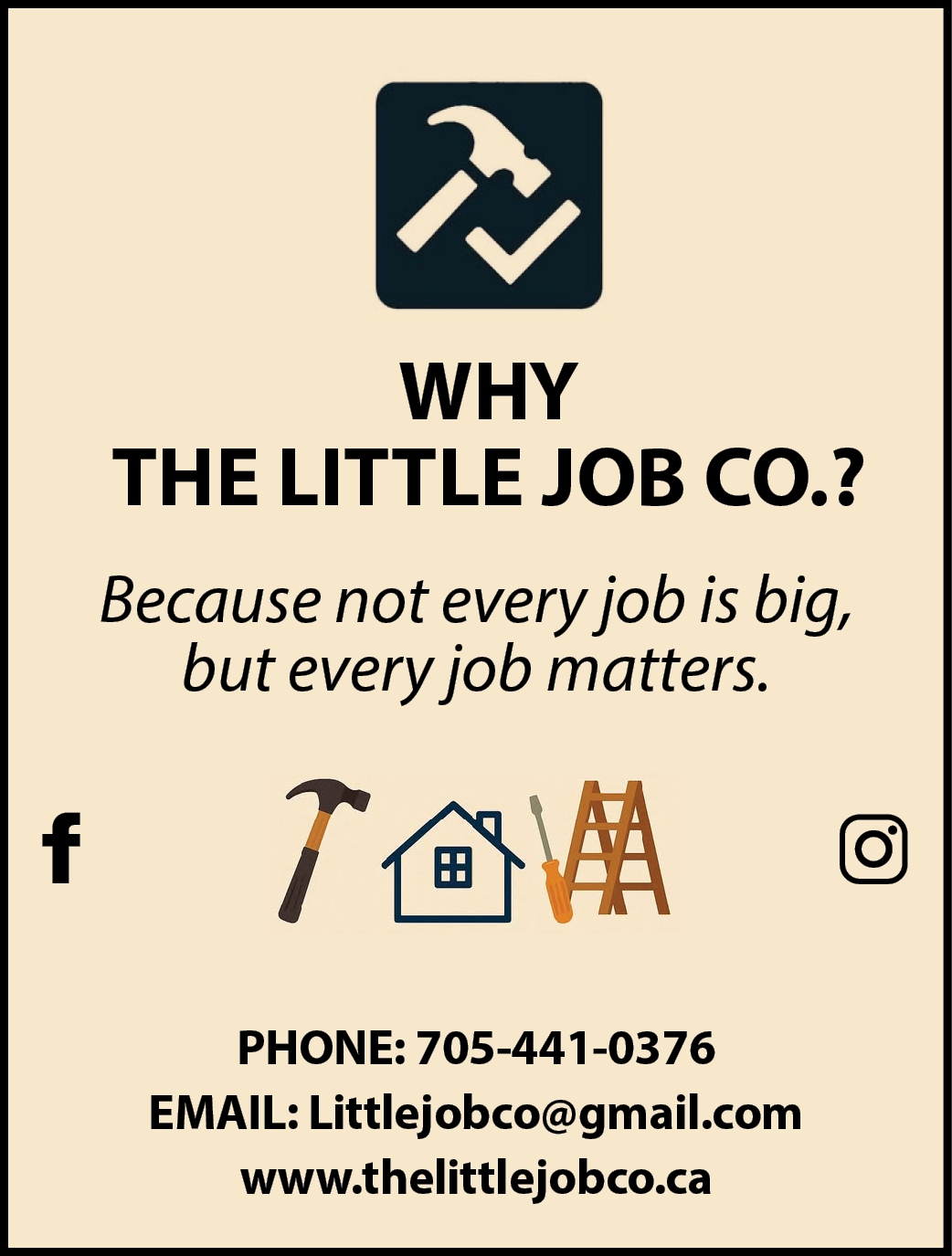Meaford’s waste management program continues to succeed in waste diversion, though the province will be introducing sweeping changes next year that will see a province-wide blue box program administered by the provincial government.
At their June 27 meeting council was presented with the 2021 Waste Management Summary report. The 15-page report provides members of council and ratepayers an insight into municipal waste management and the challenges ahead.
“In 2021, the Municipality has maintained its curbside diversion rate at approximately 67 percent based on the tonnages related to each waste stream, even with Covid-19 restrictions continuing to affect collection of waste stream tonnages both positively and negatively,” staff advised council in their report.
The report also noted the coming changes to the regulations governing the Ontario Blue Box program, which will shift the responsibility to producers.
“During 2021, the Ontario Government continued its negotiations, development and implemented changes to the Regulations governing the Ontario Blue Box System. The PROs (Producer Responsibility Organization) have continued to move toward the full producer responsibility framework for residential blue box collection and processing by the December 31, 2025 deadline,” staff advised. “The Municipality has received notification to indicate the preferred transition date of September 30, 2023 was accepted. Staff continue to receive information on the transition and its overall implementation regularly. This aligns with the expiration of the Municipality’s three-year collection contract that commenced in October of 2020, and is set to expire September 2023 and will eliminate all residential collection financial impact moving ahead with the transition, but will require a plan for commercial collection.”
The report noted that the municipal waste app for smartphone users continues to be well used by residents.
“Residents searched for how to correctly dispose of specific materials 9,239 times during the year. This web application has been well received by residents and continues to provide real time waste disposal information to our residents about all streams of waste management in the Municipality,” staff advised. “Collection-related complaints in 2021 were consistent with complaint data collected in previous years. Municipal staff provided assistance for concerns related to late set-outs, wrong collection date, rejected non-recyclable items in the Blue Box stream, which is consistent with previous years.”
Other efforts to increase Meaford’s diversion of waste from landfills have included the establishment of a leaf and yard waste facility, e-waste program, partnering with the City of Owen Sound for hazardous waste disposal, and a recently launched Styrofoam program.
“The 2021 E-waste program, a collaboration between the Municipality and the SOS Bins, continued to be very successful in 2021. With increased hours and additional promotion, the usage of the service significantly increased during the year. Over the course of 2021, the e-waste recycling program diverted 25,718 kg of electronic waste which is an increase of approximately 10,000 kg from 2020 data,” staff noted. “In 2021 the transition of the Leaf & Yard Facility operations was transferred to the Transportation Department. Staff reviewed the overall requirements and felt that since the location and staff availability to operate/maintain this service was largely at the Patrol A facility, that this was the best fit. The Leaf and Yard facility continued to operate under strict Covid-19 protocol during 2021 which limited the number of vehicles on site at any one time. During 2021, just over 6,600 vehicles disposed of their leaf, garden waste, and brush, with a small portion of this group purchasing woodchips, compost, or mulch.”
The most recent waste diversion initiative has been a collaboration with Transition Meaford to offer a collection depot for Styrofoam.
“During the fall of 2021 the Municipality had the opportunity to partner with Transition Meaford to provide a Styrofoam collection depot. This was set up as a pilot program for one year to determine the effectiveness and ability to operate as a joint venture. The first 3 months of the program were successful with Transition Meaford providing the staffing on collection days,” staff explained.
While all municipalities in Ontario will be required to have an organic material collection program in 2022, the Municipality of Meaford has been collecting organic materials for several years, helping to increase the amount of waste diverted from landfills.
“When comparing organic tonnages for 2020 to 2021, organic material collected has increased by 7.19 tonnes or +1.50%. This waste collection stream has remained consistent during 2021. Promotion and education continue on public awareness regarding food waste diversion, purchasing only quantities you need and promoting a Waste Free Ontario model based on Ontario legislation,” staff noted in their report. “Proposed changes in 2022 to current regulations will require all municipalities to have an organics program. Meaford first initiated the organics program circa 1998 and has become a model for other Municipalities implementing a program.”
Staff told council that the annual update report makes clear that residents of the municipality care about waste diversion, and have actively participated in the various initiatives. For those who still push back against waste diversion strategies, Councillor Steve Bartley offered some food for thought.
“It’s very interesting to note that we collected 1,034 tons of recycling, and it it cost $26.87 per household, and then we collect 755 tons of garbage, a lot less garbage collected than recycling, and it cost us more money, actually $68 per household,” Bartley told council. “So, for those who are disbelievers in recycling, it’s almost a third of the cost per household to gather recycling as it is garbage, and I commend the municipality for doing what they are doing, to achieve our 67 percent recycling, and it is cheaper to do that than collect garbage. Even with the bag tag revenue, it still costs the municipality $429,000 to collect garbage, despite the bag tag revenue.”












